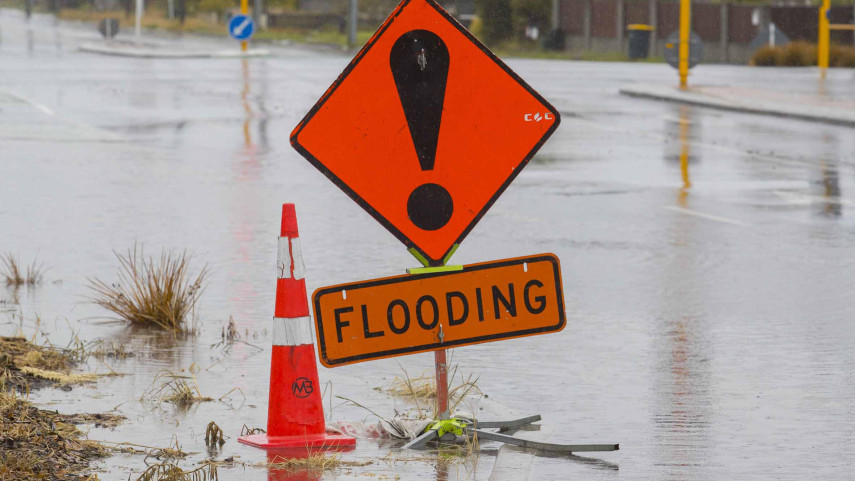
Residents should prepare for more flooding, slips

Share this story
Christchurch and Banks Peninsula residents should prepare for the possibility of more flooding and slips this week as the district is about to be hit by another band of rain.
“This July has been one of the wettest on record and unfortunately there is more rain to come over the next few days,’’ says Christchurch City Council Civil Defence and Emergency Management Manger Brenden Winder.
“With the ground already saturated and river levels reasonably high, it is likely we will get surface flooding in parts of the district so people should prepare for that. We may also get some slips in hillside areas.
“The worst of the rain looks like it will hit us on Tuesday and Wednesday. Strong easterly winds are forecast to accompany the rain, which may create issues with estuary and river levels, particularly around high tide on Tuesday afternoon and Wednesday morning.
“Staff and contractors are ready to respond to issues that might arise and our contact centre will be open around-the-clock for residents who need help. We will prioritise responding to calls where safety is an issue or where people’s homes and businesses are at threat. If people feel their safety is at risk they should call 111 immediately,’’ Mr Winder says.
Residents do not need to report flooding on roads to the Council unless there is a genuine safety issue. The roads will cope with stormwater ponding on them and the water will drain away once the rain stops.
“Our contractors have been checking key parts of the stormwater network in preparation for this week’s rain and we have released water from the storage basins in the upper Heathcote so that we have capacity to store stormwater during the peak of this weather event,’’ Mr Winder says.
“If you know there are leaves blocking sumps or drains by your property, it would help us if you could remove them, if it is safe to do so, and put them in your green wheelie bin.
“If you live in an area that is prone to flooding, please think about where you park your car. Don’t park it somewhere where it could get caught in flood water.
“Please remember too that if you’re driving on the roads and you come across ponded water that you can’t detour around, proceed slowly so that you don’t push it onto people’s properties.
“If you come into contact with flood water, you should treat it as contaminated and wash your hands thoroughly afterwards,’’ Mr Winder says.
